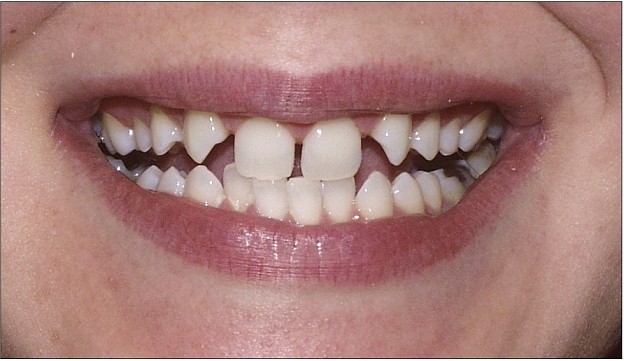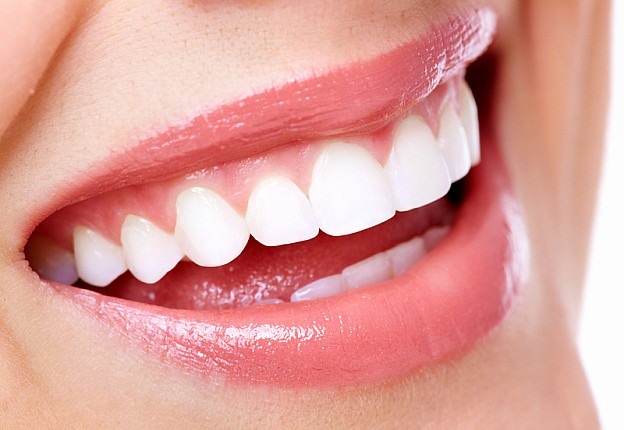At some point in our life we will all lose some or all of our teeth. There are many reasons for loosing teeth. From the age of about 6 years up until puberty we start to lose our ‘baby teeth’. These are replaced with our permanent teeth. This is a natural process that everyone will go through. We need to look after our permanent teeth as we only get 2 sets of teeth and once we start to lose these we have to think of other ways to replace these teeth.
Having the odd tooth missing isn’t usually a problem for most people; they can still eat, speak and smile without any problems. It’s the underlying factors that can, over time, start to cause problems.

Some Reasons for loosing teeth
- Tooth decay – if caught early enough the decay can be removed and a filling placed. If left the decay will cause an infection and the tooth may have to be removed.
- Gum Disease – if untreated the gums become more inflamed pulling away from the teeth. The bone supporting the teeth resorbs making the teeth loose. Eventually the teeth will be so loose they will literally fall out.
- Trauma – usually a blow to the face caused by an accident or a sports injury. In some instances it is possible to reinsert a tooth if it has been knocked out. This must be done as soon as possible as the sooner it is then the higher chance of success. Mouth guards are made to protect the teeth during contact sports but accidents do happen.
Why replace missing teeth?
When you lose teeth over time the teeth either side of the gap gradually starts to lean into the gap. The tooth or teeth above or below the gap then starts to move downwards/upwards as it has nothing to meet against when eating or chewing. Having these teeth out of their original position can cause problems with biting and chewing. You may find it could even affect your speech.
Also the bone that supported the missing teeth starts to resorb. As you lose more teeth more bone resorbs meaning that your choices of treatment to replace the gaps becomes restricted. This also has an impact on your face. The more teeth you lose the more flexibility in your cheeks as there is nothing to support them. The face becomes gaunt and sunken, which in turn makes you feel less confident about yourself.

This is why it is important to replace these gaps early and really look after your teeth. We only lose teeth due to our own fault so the better we look after them, the longer our teeth will last.
How do you replace missing teeth?
There are several options to replace missing teeth, each with their own advantages and disadvantages.
Dental Implants
These are probably the best treatment for replacing missing teeth. No other teeth are disturbed during this treatment. Implants stop the bone from receding as the bone has something to hold onto. Done properly Implants can last you a very long time. There are different varieties of Implants and they all come in different sizes.
Implants take approximately 4 months to complete. This is because once the implant has been placed we have to wait about 3 months for the bone to heal or integrate around it making it stable and secure. Then we add the crown on top to replicate the tooth. Implants can be placed to replace single missing teeth or multiple missing teeth. They can also be placed to secure a bridge or denture.
Dentures
Just like Implants, Dentures can be used to replace a single tooth or multiple missing teeth. Dentures can be made partial or full and made of acrylic or cobalt chrome. If made properly dentures can be comfortable and fit snugly around your existing teeth. If you lose more teeth, more teeth can be added to the denture to replace these.
Partial dentures work because they have other teeth to hold onto, usually with the help of clips. Full dentures have no teeth to help secure them. The top denture relies on suction from the palate to keep it in place. The bottom denture relies on a bony ridge to hold it in place. This bony ridge over time resorbs so eventually there is no ridge, which makes the denture move around and make eating and speaking difficult. In most instances Implants can be placed, usually 4, to hold the bottom denture in place. This can only be done if there is enough bone available to hold the implants in place. Small clips are attached to these implants and then again to the denture. Once clipped together these make the denture stable and secure. Biting into an apple or eating steak becomes a reality again.
Dental Bridges
Dental Bridges can only be used to replace missing teeth if there are teeth either side of the gap to support the bridge. Bridges can be made from Porcelain and metal or just porcelain. They are incredibly strong and can last you years. The disadvantage of bridges is that other teeth have to be adjusted in order to have the treatment.
How much will it cost to replace a tooth?
The fee depends on the treatment you decide to have. If you have a budget in mind inform your dentist and they will do their best to keep with that budget.
About us
Perfect Smile Spa has a highly experienced Cosmetic Dentist who can help you decide the best way to replace your missing tooth or teeth. He will discuss in detail the pros and cons for treatment and for not having treatment. Situated in the busy High Street of Hornchurch, we are easily accessible by all types of transport.
This post is by Dr Jas Sagoo who is the principle dentist at Perfect Smile Spa in Essex.Why Replace Missing Teeth? was last modified: July 2nd, 2018 by Dr Jas Sagoo



 132a High Street
132a High Street 01708442114
01708442114  care@perfectsmilespa.co.uk
care@perfectsmilespa.co.uk


